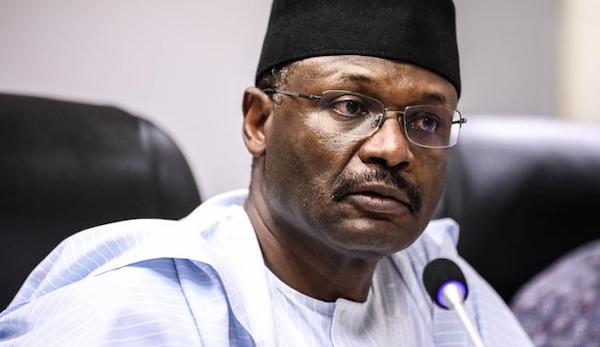Politics
INEC to address problems with voter accreditation system ahead of 2023 elections – Yakubu

The Chairman of the Independent National Electoral Commission (INEC), Prof. Mahmood Yakubu, on Tuesday expressed confidence that the commission would conduct a free and fair election in 2023 despite concerns over the Bimodal Voter Accreditation System (BVAS).
Yakubu stated this during a meeting with States Resident Electoral Commissioners (RECs) in Abuja.
He said: “When the commission introduced the BVAS last year, the compact device was intended to achieve two objectives. First is the verification of the genuineness of the Permanent Voters’ Cards (PVCs) and the fingerprint or facial authentication of voters during accreditation. Secondly, to replace the Z-pad for uploading the polling unit results to the INEC Result Viewing Portal (IReV) in real-time on Election Day.
“So far, the BVAS has performed optimally in verifying the authenticity of PVCs and uploading images of Polling Unit results to the IReV.
“We will review and improve its functionality for biometric accreditation of voters in the forthcoming bye-elections and off-season Governorship elections before the 2023 General Election.
“The Commission remains convinced that the deployment of technology in our elections safeguards the integrity of the vote and provides a better guarantee for electoral credibility than the best manual process. The review of Election Day administration, in general, is one of the issues to be discussed at this meeting.”
The INEC chairman listed plans by the commission to ensure more eligible voters are registered before the elections.
READ ALSO: Voters registration excites INEC as upsurge hits 5.1m
Yakubu added: “Similarly, in order to provide more eligible voters with the opportunity to register, the Commission is considering the devolution of the exercise nationwide beyond our State and Local Government offices where the registration currently takes place. The devolution of the CVR exercise to other designated centres is one of the major issues for discussion at this meeting.
“Closely related to the issue of CVR is the balanced distribution of voters to polling units nationwide. Last year, the Commission achieved the historic feat of expanding voter access to polling units nationwide.
“The idea is to decongest the densely populated polling units by converting the erstwhile Voting Points (VPs) and Voting Point Settlements (VPS) to Polling Units and relocating some of them to unserved and underserved areas to make it easier for voters on Election Day.
“While this lofty goal has been achieved in many states, there are still congested Polling Units and other Polling Units with between 0 and 50 voters as we saw in some of the recent elections.
“Over the next few weeks, the Commission will intensify efforts to address the issue ahead of the forthcoming Ekiti and Osun Governorship elections and ultimately the 2023 General Election.”
Join the conversation
Support Ripples Nigeria, hold up solutions journalism
Balanced, fearless journalism driven by data comes at huge financial costs.
As a media platform, we hold leadership accountable and will not trade the right to press freedom and free speech for a piece of cake.
If you like what we do, and are ready to uphold solutions journalism, kindly donate to the Ripples Nigeria cause.
Your support would help to ensure that citizens and institutions continue to have free access to credible and reliable information for societal development.
























